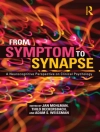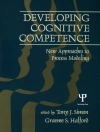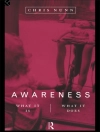From leading cognitive-behavioral therapy (CBT) experts, this book describes ways to tailor empirically supported relationship factors that can strengthen collaboration, empiricism, and Socratic dialogue and improve outcomes. In an accessible style, it provides practical clinical recommendations accompanied by rich case examples and self-reflection exercises. The book shows how to use a strong case conceptualization to decide when to target relationship issues, what specific strategies to use (for example, expressing empathy or requesting client feedback), and how to navigate the therapist’s own emotional responses in session. Special topics include enhancing the therapeutic relationship with couples, families, groups, and children and adolescents. Reproducible worksheets can be downloaded and printed in a convenient 8 1/2′ x 11′ size.
Tabla de materias
Foreword, Judith S. Beck 1. Introduction 2. Defining the Therapeutic Relationship in CBT I. Generic and CBT-Specific Relationship Elements 3. Tailoring Empirically Supported Relationship Elements with Cognitive Case Conceptualization 4. Collaboration and Empiricism 5. Socratic Dialogue and Guided Discovery II. Application of the Guidance in Therapy 6. Setting Agendas and Establishing Pace and Session Goals 7. Behaviorally Focused Interventions 8. Cognitively Focused Interventions 9. Cognitive and Behavioral Experiments 10. Between-Session (Homework) Interventions 11. Concluding Relationships and Relapse Prevention III. Therapist Reactions and Therapy Contexts 12. Ethics and Safeguards to the Therapeutic Relationship 13. Identifying and Managing Therapist Reactions 14. Working with Couples, Families, and Groups 15. Working with Children and Adolescents, Mark J. Knepley, Hannah Frank, and Philip C. Kendall References Index
Sobre el autor
Nikolaos Kazantzis, Ph D, is Associate Professor in the School of Psychological Sciences and the Institute for Cognitive and Clinical Neurosciences at Monash University (Australia), where he directs the clinical training program and Cognitive Behaviour Therapy Research Unit. He has an active funded research program studying various aspects of treatment process, with a particular emphasis on depression and cognitive-behavioral therapy (CBT). He is a recipient of many prestigious professional awards, including the Beck Scholar Award for Excellence in Contributions to Cognitive Therapy from the Beck Institute for Cognitive Behavior Therapy, presented by Dr. Aaron T. Beck and Dr. Judith S. Beck. Dr. Kazantzis is a Fellow of the Australian Psychological Society, a current board member of the International Association of Cognitive Psychotherapy (IACP), and the IACP delegate for Australia. He is Associate Editor for the British Journal of Clinical Psychology, Cognitive Therapy and Research, and the International Journal of Cognitive Therapy, and has published over 100 peer-reviewed publications and 6 books, including The Therapeutic Relationship in Cognitive-Behavioral Therapy and Using Homework Assignments in Cognitive Behavior Therapy. Dr. Kazantzis has developed CBT training programs for over 6, 000 professionals and has presented workshops in 20 countries. Frank M. Dattilio, Ph D, ABPP, is a Teaching Associate (part-time) in Psychiatry at Harvard Medical School and Clinical Associate in Psychiatry at the University of Pennsylvania School of Medicine. He is also a practicing clinical psychologist in Allentown, Pennsylvania, where he provides individual, couple, and family therapy. Dr. Dattilio has presented extensively throughout the world on treating a wide range of disorders using CBT and has been active in research, professional education, training, and supervision of psychiatrists and mental health professionals. His more than 300 publications include 23 books in the areas of couple and family therapy, anxiety and behavioral disorders, and clinical and forensic psychology. Dr. Dattilio serves on the editorial boards of a number of professional journals and is the recipient of numerous awards for outstanding achievement in the fields of psychology and psychotherapy. Keith S. Dobson, Ph D, is Professor of Clinical Psychology at the University of Calgary, Alberta, Canada, and a Principal Investigator for the Opening Minds program of the Mental Health Commission of Canada, with a focus on stigma reduction in the workplace. His research has focused on both cognitive models and CBT for depression. Dr. Dobson has published over 230 articles and chapters, 13 books, two DVDs, and one DVD series. He is a past president of the Canadian Psychological Association (CPA), the Academy of Cognitive Therapy, and the International Association for Cognitive Psychotherapy. Dr. Dobson is a recipient of the Award for Distinguished Contributions to the Profession of Psychology and the Donald O. Hebb Award for Distinguished Contributions to the Science of Psychology from the CPA, among other honors.












